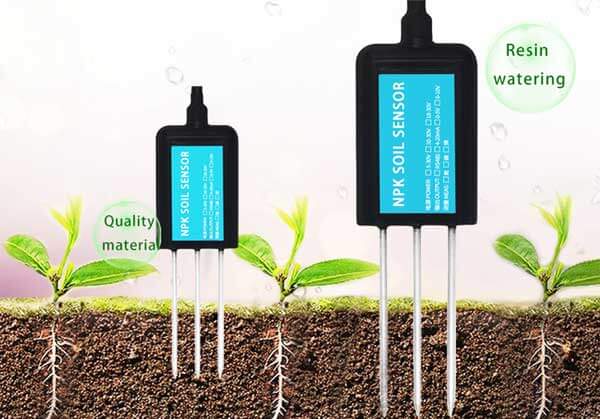Soil sensors are becoming an integral part of sustainable crop management, providing valuable insights into soil conditions and crop growth. This article explores the potential of soil sensors in enhancing sustainable crop management through improved soil fertility, precision fertilization, water management, and disease control. The article also highlights the role of soil sensors in reducing environmental impact, increasing crop yields, and improving food security.

Introduction
Sustainable crop management is essential for meeting the food and environmental needs of a growing global population. Traditional crop management practices often result in low yields and environmental degradation due to overuse of fertilizers and water. To address these challenges, soil sensors have emerged as a promising tool for enhancing sustainable crop management. This article explores the potential of soil sensors in improving soil fertility, precision fertilization, water management, and disease control to enhance sustainable crop management.
Soil Fertility
Soil sensors can monitor soil fertility by measuring pH, nutrient availability, and moisture content. This information helps farmers identify areas where fertilizers are needed and where they can be reduced, reducing the overall amount of fertilizer required. By using soil sensors, farmers can target fertilizer application to specific areas, ensuring that the nutrients reach the plants efficiently. This approach not only reduces the environmental impact of fertilizer application but also ensures that crops receive the necessary nutrients for optimal growth.
Precision Fertilization
Precision fertilization is a key aspect of sustainable crop management. Soil sensors allow farmers to identify areas where specific nutrients are lacking, enabling targeted fertilization with minimal waste. This approach reduces the environmental impact of fertilizer application by reducing runoff and leaching into groundwater. It also ensures that crops receive the necessary nutrients to achieve maximum yield without overdosing on fertilizers. By using soil sensors, farmers can also monitor the progress of fertilization reactions in real-time, enabling them to make informed decisions about fertilizer application rates and timing.
Water Management
Water management is another crucial aspect of sustainable crop management. Soil sensors can monitor soil moisture content, enabling farmers to determine when and where to irrigate their fields. This approach reduces water wastage and ensures that crops receive the necessary amount of water for optimal growth. By using soil sensors, farmers can also identify areas where waterlogging occurs, allowing them to take corrective measures such as draining or replanting. Water management using soil sensors can also contribute to reducing salinity issues in soils, which is a common problem in many parts of the world. Salinity can adversely affect crop growth and yield, but soil sensors can help farmers identify and manage salinity levels effectively.
Disease Control
Soil sensors can also contribute to sustainable crop management by assisting in disease control. Pathogens and diseases can pose a significant threat to crop health and yield, but traditional methods of disease control often involve the use of chemicals that can have negative environmental impacts. Soil sensors can help farmers identify areas where diseases are present by measuring soil properties that are affected by the presence of pathogens. This information can then be used to target disease control measures such as fungicide application or cultural practices that can help manage the spread of diseases and reduce the need for chemical inputs.
Benefits of Soil Sensors in Enhancing Sustainable Crop Management
Soil sensors provide several benefits in enhancing sustainable crop management. Firstly, they improve soil fertility by targeting fertilizer application to specific areas, reducing the environmental impact of overfertilization. Secondly, they enable precision fertilization, ensuring that crops receive the necessary nutrients for maximum yield without overdosing on fertilizers. Thirdly, they assist in effective water management, reducing water wastage and ensuring optimal crop growth. Finally, soil sensors improve disease control by identifying areas where diseases are present, reducing the need for chemical inputs and ensuring sustainable agriculture practices for future generations.
Future Developments
The future of soil sensors in enhancing sustainable crop management holds significant promise. Advances in sensor technology will enable more sensitive and reliable measurements of soil conditions, providing farmers with even more accurate data for decision-making. In addition, advances in data analytics and machine learning algorithms will enable more accurate prediction and modeling of crop growth patterns, leading to more effective fertilization and water management strategies. Furthermore, the integration of soil sensors with other precision agriculture technologies such as drones and remote sensing will enable farmers to monitor their fields from a distance, reducing the need for manual labor and increasing overall efficiency.

Conclusion
Soil sensors are playing a pivotal role in enhancing sustainable crop management by providing valuable insights into soil conditions and crop growth. They enable precision fertilization, effective water management, and disease control, resulting in increased crop yields and reduced environmental impact. The future of soil sensors holds promise for further advancements in sensor technology and data analytics
